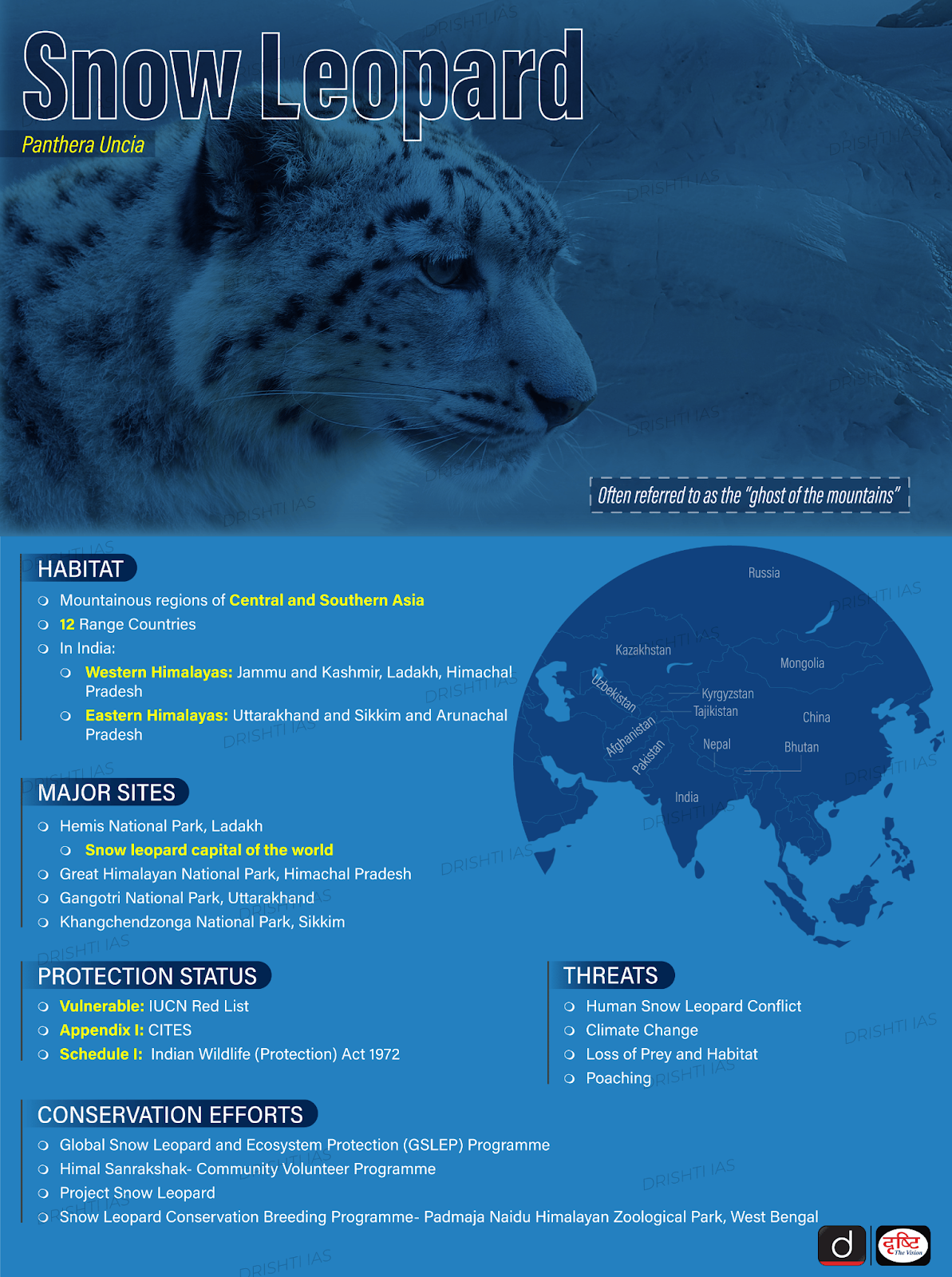Important Facts For Prelims
Darjeeling Zoo’s Conservation Breeding Programme for Snow Leopards
- 12 Jan 2024
- 3 min read
Why in News?
The Padmaja Naidu Himalayan Zoological Park (PNHZP), West Bengal also commonly known as Darjeeling zoo has achieved international recognition from the World Association for Zoos and Aquariums (WAZA) for its successful conservation breeding programme (CBC) for snow leopards.
- This recognition is a testament to the zoo's dedication to wildlife conservation and the preservation of endangered species.
What is the World Association for Zoos and Aquariums (WAZA)?
- WAZA is the global alliance of regional associations, national federations, zoos and aquariums, dedicated to the care and conservation of animals and their habitats around the world.
- The membership consists of nearly 400 leading institutions and organisations around the world, and this number continues to grow.
What are the Conservation Efforts of Snow Leopards in the Darjeeling Zoo?
- About:
- Darjeeling Zoo has the only conservative breeding programme for snow leopards in India.
- Apart from snow leopards, it has conservative breeding programmes for red pandas, mountain orals and pheasants.
- Darjeeling zoo is the largest high altitude zoo in India.
- Conservation Breeding Programme:
- The first ex-situ conservation breeding program started in 1986 as a Snow Leopard conservation breeding project.
- The CBC at Darjeeling Zoo recorded the first birth of a snow leopard in 1989. Since then, 77 snow leopards have been born at the zoo, marking a remarkable achievement in wildlife conservation.
- The zoo's success in breeding snow leopards can be attributed to careful pairing of male and female snow leopards, creating a natural environment within the enclosures, and using a wide genetic pool to avoid inbreeding.
- Before pairing, the snow leopards are kept in adjoining enclosures to develop courtship. Once their compatibility is observed, they are paired and kept in the same enclosure.
- Pregnant female leopards are separated and kept under 24X7 CCTV surveillance, with regular blood tests and monitoring of body weight.
- The zoo practices the highest biosecurity protocols for all captive animals, including regular screening for parasites, deworming, and advanced veterinary facilities.
UPSC Civil Services Examination Previous Year Question (PYQ)
Q. Consider the following: (2012)
- Black-necked crane
- Cheetah
- Flying squirrel
- Snow leopard
Which of the above are naturally found in India?
(a) 1, 2 and 3 only
(b) 1, 3 and 4 only
(c) 2 and 4 only
(d) 1, 2, 3 and 4
Ans: (b)





